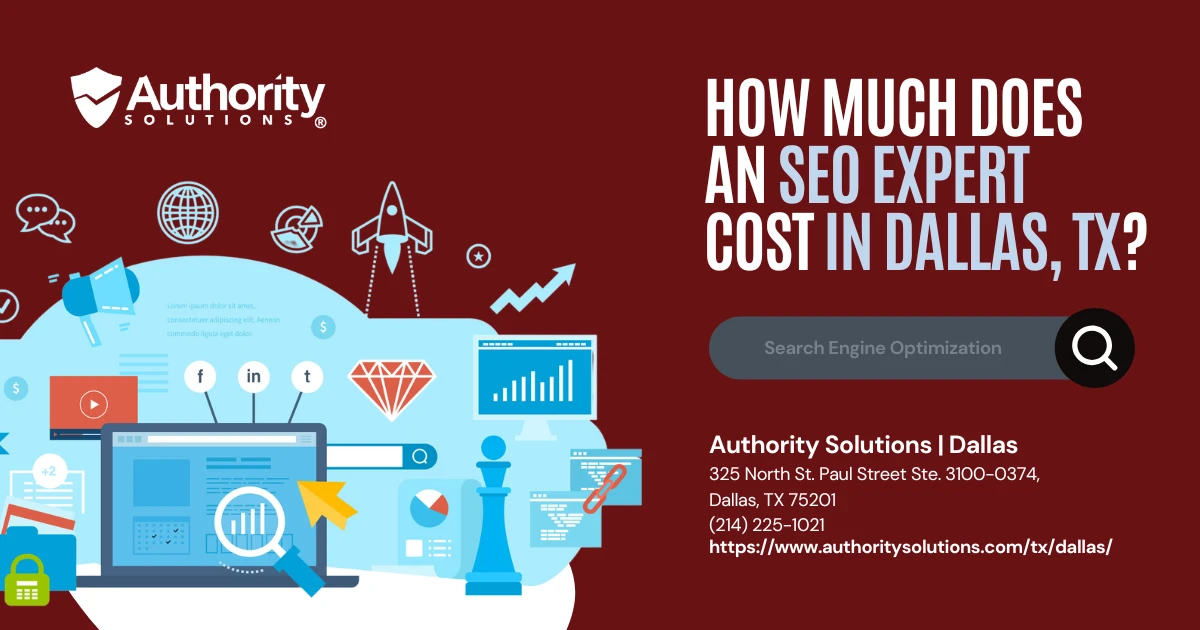How Long Do SEO Services Take to Show Results?
SEO takes between three and six months to start showing results. The timeline for these results can vary based on several factors, including the level of competition in your industry and the effectiveness of the strategies that are implemented.
In less competitive markets, you might notice initial benefits sooner, often within three months. However, in highly competitive environments, significant improvements may take anywhere from 16 to 24 months.
To achieve long-term success, it is crucial to maintain consistency in producing quality content and developing a strong backlink profile.
Understanding these variables can help you set realistic expectations for your SEO journey, enabling sustainable growth and improved online visibility.
There are many aspects to consider throughout this process, and being informed will help you navigate your SEO efforts effectively.
Key Takeaways
- SEO Timeframe Expectations: SEO campaigns generally take 4-6 months to deliver noticeable results. Initial ranking improvements can appear around the three-month mark, with outcomes varying based on competition and keyword difficulty.
- Low Competition Keywords: For less competitive keywords, early results may be visible within 3-6 months, offering a quicker pathway to incremental improvements in organic rankings and traffic.
- Medium Competition Keywords: Keywords with moderate competition typically show initial results within 3-4 months. A well-executed strategy is vital to sustain progress and avoid plateaus in ranking improvements.
- High Competition Markets: High competition markets often require 16-24 months to see significant results, demanding a substantial investment in resources, including high-quality content creation, robust link-building, and ongoing technical SEO optimization.
- Critical Success Factors: The timeline for SEO success depends on key elements such as the effectiveness of technical SEO, the quality and relevance of your content, and the authority of your backlink profile. Consistency is crucial.
Factors Affecting SEO Timelines
The timeline for achieving SEO results is shaped by a variety of factors that can be categorized into business, SEO, site-specific, and optimization tactics. Business factors, such as changes in the marketplace and budget limitations, play a critical role in determining SEO timelines. A clearly defined SEO strategy and appropriate resource allocation can help speed up progress, whereas ambiguous KPI definitions may slow it down.
From an SEO perspective, elements such as crawling, indexing, and keyword competition significantly influence outcomes. Websites aiming for high-competition keywords often face longer timelines due to algorithm updates that favor established authority. A strong backlink profile, along with high-quality content, can improve rankings, but it requires time and dedication to achieve. Organic traffic can rise within days or take up to six months, which underscores the variability in SEO timelines. Effective SEO involves creating high-quality, relevant content that matches user intent, making it essential for driving desired results.
Site-specific factors, including domain age and the volume of existing content, also impact how quickly a site can reach SEO benchmarks. Newer domains typically take longer to establish authority, while sites with a substantial amount of optimized content may experience faster improvements. Lastly, effective optimization tactics such as thorough keyword research, regular content creation, and strategic link-building can help expedite results, especially when paired with advanced SEO tools and AI technologies. Understanding these diverse influences is crucial for setting realistic expectations regarding SEO timelines.
Ready to see SEO results? Contact us today!
SEO Strategies and Their Impact
Effective SEO strategies, particularly in technical SEO and content creation, are vital for a website's success. Technical SEO improves site performance and user experience, both of which are essential for achieving favorable search engine rankings. Additionally, implementing core web vitals can significantly enhance site performance and user satisfaction. At the same time, creating high-quality content engages visitors and drives targeted traffic, leading to increased visibility and enhanced brand authority. By focusing on these elements, websites can better meet user needs and perform well in search results. Incorporating keyword research into the strategy is essential for aligning content with audience searches.
Technical SEO Benefits
Implementing technical SEO offers numerous advantages that significantly enhance website performance, user experience, and overall visibility. At its core, technical optimization focuses on critical factors such as site speed, which plays a crucial role in retaining visitors and improving search engine rankings. A well-structured site that is optimized for crawlability ensures that search engines can index content efficiently, leading to increased discoverability. Additionally, improving Core Web Vitals is essential for enhancing user experience, as it directly impacts engagement and search rankings.
Technical SEO practices, such as creating XML sitemaps and establishing effective internal linking, lead to better site design. This design not only assists search engines in navigating your site but also elevates user engagement, which can reduce bounce rates and boost conversion rates. In today's digital landscape, mobile optimization is vital, as it allows businesses to connect with a broader audience and enhance visibility in mobile search results.
Security is another critical component; implementing HTTPS not only safeguards user data but also bolsters a brand's reputation. The advantages of technical SEO are extensive, resulting in increased traffic, an improved user experience, and a stronger brand presence. These elements are essential for achieving sustained success in the online environment.
Content Creation Importance
Content creation is a vital component of effective SEO strategies, acting as the connection between user intent and search engine algorithms. High-quality, relevant content enhances user experience and plays a crucial role in boosting search engine rankings. By addressing user queries and interests, businesses can significantly increase organic traffic, as users are more inclined to engage with informative content that meets their needs.
To produce impactful content, it is important to identify target keywords and understand audience demographics. This strategic approach ensures content relevance, aligning with search queries and user intent. Crafting original and fresh content that resonates with the target audience promotes user engagement, leading to increased trust and domain authority over time. Additionally, prioritizing high-quality content can further amplify visibility and improve engagement metrics.
Measuring the effectiveness of content through key performance indicators (KPIs) allows for continuous optimization. A well-planned SEO strategy enhances organic impressions and clicks, often yielding measurable results in a relatively short timeframe. Ultimately, consistent content creation is essential for maintaining and improving rankings, integrating seamlessly with broader marketing objectives to achieve long-lasting success.
General Timeline for Results
A typical SEO campaign generally requires a timeline of 4-6 months to start producing noticeable results. During this period, you can expect to see rankings begin to rise around the three-month mark, which will likely lead to a gradual increase in organic traffic. As traffic improves, businesses often start to notice an influx of leads, provided there is enough organic traffic to generate inquiries. Additionally, focusing on high-quality content can significantly enhance engagement and retention rates.
While these expectations are common, various factors can influence the speed of achieving SEO results. The effectiveness of the SEO strategies implemented is crucial; high-quality efforts can lead to quicker outcomes, whereas poor execution may slow progress. The level of trust that Google places in a website, along with the competitiveness of the niche, also plays a significant role in how swiftly results will emerge.
Conducting effective keyword research and creating valuable content are essential components of SEO that can affect the timeline. Technical improvements and strategic link-building are also important, as they can help facilitate faster advancements. By understanding these factors, you can set realistic expectations for your SEO efforts. Remember, while it may take time to see results, consistent effort and strategic planning are fundamental to your success. Additionally, comprehensive SEO campaigns typically yield results in 4-6 months if all services are included.
Industry Variances in Timelines
The timelines for observing SEO results can vary significantly depending on the level of competition within an industry. In sectors with low competition, businesses may begin to see initial results within a few months. For those in medium competition industries, it typically takes around six to twelve months to notice meaningful improvements. In contrast, companies operating in high competition markets may face a longer journey, often requiring 16 to 24 months to achieve significant outcomes. Understanding these timelines can help set realistic expectations and guide strategic planning for SEO efforts. Additionally, successful SEO often relies on a balance of technical, content, and off-site optimizations, which can further influence the time frame for results.
Low Competition Industries
Low competition industries tend to yield quicker SEO results compared to more saturated markets. Businesses operating in these sectors can leverage their competitive advantages to see noticeable improvements within a timeframe of 3 to 6 months. This expedited timeline is largely due to the opportunity to focus on niche keyword targeting, which involves selecting relevant keywords that attract specific traffic without facing significant competition.
The quality of content and backlinks is crucial in this process. Crafting high-quality content tailored to the audience, along with strategic backlink acquisition, can significantly boost visibility and credibility in a short period. Implementing local SEO strategies can also deliver initial results within 3 to 4 months, especially for businesses that serve specific geographic areas with limited competition.
It's important to note that the age of the domain can impact SEO timelines. Newer websites may encounter the Google Sandbox effect, which can delay the establishment of authority. Consistency in optimization efforts and budget allocation are also important factors that contribute to achieving results more quickly. By prioritizing these elements, businesses in low competition industries can navigate the SEO landscape effectively and achieve significant, timely results.
Medium Competition Industries
Businesses operating in medium competition industries, such as specialized e-commerce stores and law firms, may encounter unique challenges compared to those in low competition sectors. However, they can still achieve significant SEO results within a reasonable timeframe. Typically, these industries can expect to see initial outcomes within 3-4 months, with more substantial improvements occurring over the next 6-12 months.
While some may believe in the potential for instant results in SEO, the reality is that sustained effort is essential for success. Several key factors influence the timeline for achieving results, including the level of competition, the quality of content, and the strength of backlinks. Thorough keyword research is vital for identifying medium-competition keywords that are relevant and aligned with current trends, enabling effective content creation.
Technical optimization is equally important. Addressing issues such as crawl errors and optimizing page speed can significantly improve a website's performance. Regularly monitoring SEO analytics allows businesses to track their progress and pinpoint areas for enhancement. By setting realistic expectations and recognizing the long-term nature of SEO, businesses can navigate the complexities of medium competition industries and work toward achieving lasting success in their digital marketing endeavors.
High Competition Industries
Navigating SEO in high competition industries involves unique challenges that demand a strategic approach. Businesses in these sectors encounter notable SEO hurdles due to keyword saturation and the numerous competitors striving for visibility. Consequently, achieving meaningful results may take longer than anticipated.
Several key factors can impact SEO timelines in high competition industries:
- Intense Competition: Achieving ranking improvements often requires significant resources and time.
- Established Competitors: Older domains with established authority may pose challenges for new entrants.
- Frequent Algorithm Updates: Regular changes can disrupt progress, complicating timelines.
- High-Quality Content: Consistently producing relevant content is vital for long-term success.
In consumer industries, it may take 2-4 years to achieve high rankings, while e-commerce sectors can see quicker wins for specific keywords. B2B services often face extended timelines due to complex sales cycles. Adjusting your strategy to focus on niche markets or utilizing local SEO can help expedite results. Ultimately, understanding the distinct factors within your industry allows you to set realistic expectations and effectively guide your SEO efforts.
Budget Considerations for SEO
Navigating the intricacies of budget considerations for SEO requires a thoughtful strategy to ensure that resources are allocated effectively. A clearly defined budget is vital to enhance your SEO efforts, especially when managing an annual budget of approximately $50,000.
Key areas to focus on include:
- Technical SEO: 10-15% of the budget ($5,000–$7,500).
- Content creation: 40-50% of the budget ($20,000–$25,000).
- Link building: 20-25% of the budget ($10,000–$12,500).
- SEO tools: 10-15% of the budget ($5,000–$7,500).
- Reporting/analytics: $2,500–$5,000.
By prioritizing high-impact activities and remaining flexible, businesses can adapt to the dynamic online landscape while focusing on long-term results.
Tracking and Measuring Progress
Key metrics to monitor include:
- Keyword Rankings: Track changes to identify trends and areas for optimization.
- Organic Traffic: Examine user behavior to improve content marketing strategies.
- Search Visibility: Evaluate the site's prominence based on keyword impressions.
- CTR (Click-Through Rate): Assess how well your meta titles and descriptions perform.
Tools such as Google Analytics, Google Search Console, and SEMrush provide valuable insights for tracking progress. Conducting a regular SEO audit ensures continuous optimization.
Short-term vs. Long-term Results
Understanding the difference between short-term and long-term SEO results is crucial for setting realistic expectations and evaluating the effectiveness of your strategies. Short-term gains often appear within the first three months, as websites become indexed, achieve initial rankings for low-competition keywords, and experience a noticeable increase in search traffic. Implementing basic SEO improvements can lead to results fairly quickly, often resulting in a growth of up to 20% month-over-month in visitors.
On the other hand, a long-term commitment to SEO is vital for sustained success. After ten months or more, businesses can anticipate securing high rankings for competitive keywords, generating significant referral traffic, and seeing improved conversion rates. This timeframe allows for building site authority and credibility, which are essential for maintaining visibility in search engines. Additionally, consistent content quality is a fundamental factor that influences search engine rankings over time.
While short-term gains can provide quick wins, they are typically not enough on their own. Without a long-term strategy and ongoing optimization, initial progress may not be sustainable. Ultimately, understanding both timelines is key to developing a comprehensive SEO approach that balances immediate results with lasting growth.
Setting Realistic Expectations
Setting realistic expectations is essential for both businesses and SEO professionals, as it establishes a foundation for a successful partnership. Clear communication and effective expectation management can help reduce misunderstandings and promote a collaborative atmosphere. Here are important factors to consider when setting expectations:
- Competitiveness of Industry: Some industries may take years to achieve the desired search rankings.
- Domain Age: Older domains typically have an advantage in building authority.
- Scope of Site Optimization: Significant changes may extend the timeline for seeing results.
- Existing Content Volume: High-quality content can expedite the SEO process.
It is important to educate clients about these factors. Being transparent in reporting and emphasizing the importance of high-quality backlinks and technical SEO can strengthen trust. By managing expectations realistically, agencies can prevent disappointment and encourage long-term collaboration. Additionally, understanding key ranking factors such as content quality is crucial for achieving sustainable SEO success. Emphasizing sustained progress rather than immediate outcomes leads to strategic growth and effective SEO campaigns. Ultimately, the success of SEO services is a long-term endeavor that requires patience, understanding, and commitment from both clients and professionals. With clearly defined expectations, businesses are better equipped to achieve their online objectives.
Conclusion
In summary, the timeline for SEO services to show results is shaped by several factors, including the strategies used, the specifics of the industry, and the budget allocated. While it is possible to see some initial results in the short term, significant and lasting outcomes generally require a longer commitment. It is important to set realistic expectations and implement effective tracking methods to evaluate progress. By understanding these variables, you can navigate the complexities of SEO and maximize its potential benefits.
Patience is key with SEO, but are you seeing any movement? Authority Solutions®, a dedicated SEO agency, understands the timelines involved and sets realistic expectations. While immediate changes are rare, our strategic approach ensures consistent progress. If you're ready to begin a sustainable SEO journey and learn more about our professional SEO services, contact us for a consultation. We can help you understand the process and set achievable goals.
Start your SEO journey. Get a free consultation now.
FAQs
If I make a one-time investment in SEO, will I see permanent results?
Investing in SEO is not a one-time fix. Search engine optimization is an ongoing process. While initial on-page SEO work and technical SEO work can provide a good foundation, SEO needs consistent effort. SEO changes frequently, and search engines like Google update their algorithms. To maintain and rank higher, you need long-term SEO and consistent SEO practices.
How can I determine if my SEO is working if it takes months for SEO to work?
Tracking and measuring progress is important for SEO. You’ll likely see results in keyword rankings, organic traffic, and search visibility using SEO tools like Google Analytics and Search Console. An SEO audit can also reveal if your SEO plan is effective. These metrics help determine how long it will take to get the results and show if your SEO is working.
Why does SEO take so long, and are there ways to get SEO results faster?
SEO takes months because search engines like Google consider many factors, including content quality, backlinks, and technical SEO. While there's no magic bullet for faster results, focusing on SEO best practices, like high-quality content and technical SEO work, can help. Getting SEO results faster also depends on search volume and competition.
What are some common SEO mistakes that can lengthen the SEO timeline?
Several SEO mistakes can make it take longer to see results. These include neglecting technical SEO work, keyword stuffing, thin content, and ignoring mobile optimization. Not understanding search intent or using black hat SEO practices can also hurt your rankings. Avoiding these common SEO mistakes is important for SEO today.
How do search volume and keyword competition impact how long SEO takes?
Search volume and keyword competition significantly impact SEO result timelines. If you target high-volume, competitive keywords, it will take longer to rank higher. Conversely, targeting low-competition, niche keywords can lead to faster results. Understanding search volume is important for SEO and managing expectations about how long does SEO take.
What role do SEO agencies or SEO experts play in achieving faster results?
Professional SEO services from SEO agencies or an SEO expert can significantly impact your SEO timeline. They have the expertise, SEO tools, and resources to implement comprehensive SEO strategies, including technical SEO work, link building, and content creation. This can help you achieve SEO results faster compared to attempting it yourself.
Besides ranking, what other benefits can I start seeing from SEO efforts before significant results in rankings?
Before seeing significant results in rankings, you’ll likely see results in other areas. These include increased website traffic, improved user experience, and better brand visibility. Even before you rank higher for competitive terms, you might see improvements in engagement metrics, such as time on site and pages per visit.
How does my SEO budget influence how long it takes to see results from SEO?
Your SEO budget directly impacts how much you can invest in SEO, including content creation, link building, and professional SEO services. A larger SEO budget allows for more comprehensive SEO for your business, potentially leading to faster results. Limited resources may mean it takes longer to see significant results.
What is the difference between short-term SEO and long-term SEO, and how do they impact the timeline?
Short-term SEO focuses on quick wins, like optimizing for low-competition keywords or making minor on-page changes. While you might start seeing results quickly, these are often not sustainable. Long-term SEO involves a comprehensive strategy focused on building authority and achieving lasting results. It takes longer to see results but yields more significant and sustainable improvements.
How can I find an SEO firm or SEO expert that is right for my business and budget?
Finding the best SEO firm or SEO expert requires careful research. Look for SEO agencies or freelancers with a proven track record, positive client testimonials, and a clear understanding of your industry. Discuss your SEO budget and goals upfront to ensure alignment. Look for comprehensive SEO services and avoid anyone promising instant results.







